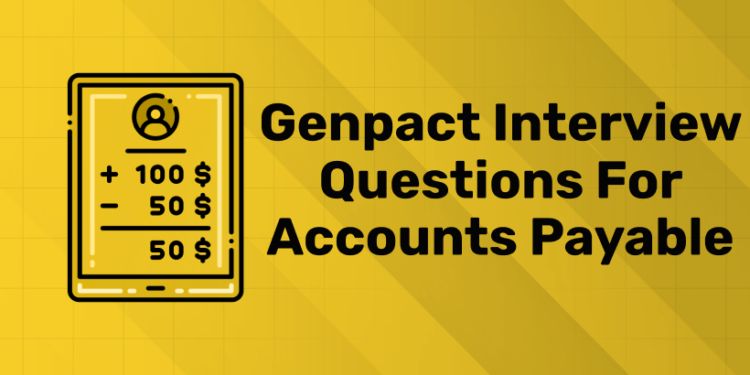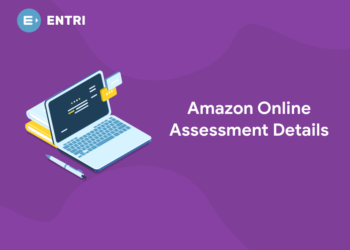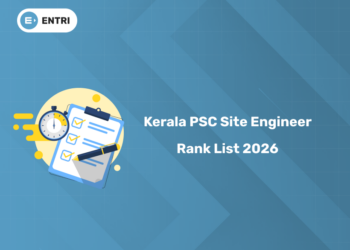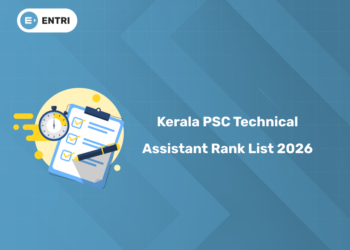Table of Contents
Genpact is one of the world’s leading professional services companies and is known to have a rigorous and competitive selection process. If you’re preparing for an interview with Genpact, it’s important that you familiarize yourself with the frequently asked questions for the accounts payable. In this guide, we’ll cover some frequently asked Genpact Accounts Payable job interview questions that can help you prepare and increase your chances of success in securing a accounts payable role at Genpact. In the sections below, you’ll discover the most frequently asked questions to give you insight into what recruiters are looking for in potential candidates. These questions cover various areas such as technical knowledge, problem solving skills and business communication skills related to billing processes.
Take Your Career to New Heights with Our Professional Accounting Course! Get free Demo Here!
Genpact Interview Questions for Accounts Payable
As a newcomer to this position, you will need expertise in finance and accounting to process invoice exceptions. Here are the best Genpact paid account interview questions and answers for entry-level candidates and refreshers to prepare you for the interview.
Q1. What do you mean by liabilities?
Answer: Accounts payable are outstanding balances owed by a company to its suppliers or vendors for goods or services received on credit. It is a liability on the balance sheet that reflects a company’s short-term obligations to pay invoices and bills within an agreed time frame.
Q2. What is a PO invoice?
Answer: A PO (purchase order) invoice is an invoice issued by a supplier or vendor for goods or services that have been ordered through a formal purchase order issued by the buyer’s organization. PO invoices are typically paired with the corresponding purchase order and receiving documents during the billing process.
Q3. What does WCC mean?
Answer: WCC stands for “working capital cycle,” which refers to the time it takes for a company to convert its investments in inventory and other resources into cash through sales and collection of receivables.
Q4. What is an invoice and why is the invoice number important?
Answer: An invoice is a commercial document issued by a seller to a buyer that lists the goods or services provided, their quantities, prices, and the total amount owed. An invoice number is a unique identifier assigned to each invoice that is essential for tracking, recordkeeping and reconciliation purposes.
Q5. What tasks are part of the billing process?
Answer: The payment process usually includes
- Receipt and verification of invoices.
- Matching invoices to purchase orders.
- Receipt of documents and obtaining the necessary approvals.
- Payment planning according to maturity and payment terms.
- Processing payments (via cheques, bank transfers or electronic payment systems).
- Keeping accurate records of transactions.
Q6. What are the responsibilities of an accounts receivable specialist?
Answer: Accounts Payable Specialists are responsible for invoicing customers for:
- Provision of goods or services on credit.
- Tracking and collecting payments from customers.
- Keeping accurate records of customer accounts.
- Overdue payment tracking.
- Resolution of possible invoicing disputes or discrepancies.
Q7. Who is the sender and what is their relationship to the recipient?
Answer: A consignor is a party (usually a manufacturer or supplier) who supplies goods to another party (the consignee) to be sold on their behalf. The consignee acts as the consignor’s agent or representative and is responsible for selling the goods and remitting the proceeds, minus commissions or fees, to the consignor.
Q8. Who is the Accounts Payable Processor? What is their job?
Answer: An accounts payable processor, also known as an accountant or specialist, is responsible for processing and managing a company’s accounts payable. Their duties include
- Receipt and verification of invoices
- Matching invoices to purchase orders
- Receiving documents
- Obtaining consents
- Payment planning and processing
- Keeping accurate records of transactions
Q9. What are the main types of accounting?
Answer: The main types of accounting include financial accounting, managerial accounting, cost accounting, tax accounting and administrative accounting.
Q10. How are liabilities and receivables different?
Answer: Accounts payable are money owed by a company to its suppliers or vendors for goods or services received on credit. On the other hand, receivables represent money owed to a company by its customers for goods or services provided on credit.
Q11. What does Non-PO invoice mean?
Answer: A non-order invoice, also known as a non-order invoice, is an invoice issued by a supplier or vendor for goods or services that have not been ordered through a formal purchase order process. Non-PO invoices can be used for one-time purchases, recurring expenses (such as utilities or subscriptions), or in situations where a purchase order is not required or has not been issued.
Q12. What does P2P cycle mean?
Answer: The P2P or Procure-to-Pay cycle refers to the entire process of acquiring goods or services, from request and purchase to receipt and payment. It includes purchasing, receiving, billing and payment processes.
Q13. What tasks does an Accounts Payable Specialist typically perform?
Answer: The duties of an Accounts Payable Specialist include:
- Reconciliation of statements and maintenance of supplier records.
- Resolving payment discrepancies and ensuring timely payments.
- Communicating with vendors regarding billing inquiries or discrepancies.
- Assist in the generation of financial statements related to liability activities.
Q14. What does GRN mean?
Answer: GRN stands for Goods Received Note, which is a document confirming receipt of goods ordered from a supplier or vendor.
Q15. What are the accounting terms for receivables and payables?
Answer: The accounting term for a receivable is “accounts receivable,” which represents money owed to a company by its customers for goods or services provided on credit. The accounting term for a liability is “accounts payable,” which represents the money a company owes its suppliers or vendors for goods or services received on credit.
Take Your Career to New Heights with Our Professional Accounting Course! Get free Demo Here!
Q16. Define debit and credit in accounting.
Answer: Debit and credit cards are the basic terms used to record transactions and maintain account balances. A debit entry represents an increase in an asset account or expense account or a decrease in a liability or equity account. Debits are recorded on the left side of the account.
Whereas a credit entry represents a decrease in an asset account or expense account or an increase in a liability or equity account. Credits are recorded on the right side of the account.
Genpact Accounts Payable Interview Questions For Mid-level
Here are the top interview questions asked at Genpact for Payable Jobs with relevant answers.
Q17. How do accounting principles help the accounts payable specialist?
Answer: Accounting policies and procedures are indispensable for accounts payable specialists. They ensure adherence to standardized procedures for accurately recording, tracking and managing financial transactions.
Mastery of these principles enables accounts payable specialists to maintain accurate records, reconcile accounts and ensure compliance with regulatory requirements, supporting effective financial management in organizations.
Q18. Can you outline the entire accounts payable cycles? Full accounts payable cycles typically include:
Answer:
- Obtaining a purchase order (PO) from the purchasing department.
- Receipt of invoice from supplier.
- Cross check with PO.
- Approve payment to suppliers.
Q19. Why are accounts payable not considered expenses?
Answer: Accounts payable are not considered expenses because they represent a liability or debt owed by the company to its suppliers or vendors. Expenses are recorded when goods or services are consumed or used, while liabilities represent the obligation to pay for those goods or services at a later date.
Q20. What is 3-way matching in accounts payable?
Answer: Three-way matching in payables is the process by which an invoice is matched to the corresponding purchase order and receiving document (such as a goods receipt or delivery note) to ensure that quantities, prices and other details match earlier. the invoice is approved for payment. This helps identify and resolve any discrepancies.
Q21. What does debt collection mean?
Answer: Debt collection involves collecting payments from clients who have purchased products or services on credit, which is a critical aspect of the money-for-cash process.
Q22. What does GL Payable Code mean?
Answer: GL payable code or general ledger payable code refers to the account code or category in the general ledger where accounts payable transactions are recorded. It helps to classify and track the company’s outstanding payables or liabilities to suppliers and vendors.
Q23. Why is verification important in the Accounts Payable Specialist role?
Answer: Verification is a critical aspect of the Accounts Payable Specialist role. This verification process helps identify and resolve any discrepancies or errors before processing payments.
Q24. What is the full form of SOX in accounts?
Answer: SOX stands for the Sarbanes-Oxley Act, which is a federal law passed in the United States in 2002 to improve corporate governance, financial reporting and accountability. It has various implications for accounting and financial practices, including requirements for internal controls and auditing procedures. In India, the law was introduced as “Clause 49” by the Securities and Exchange Board of India.
Q25. What are the different types of assets?
Answer: The different types of documents include:
- Current assets (cash, accounts receivable, inventory, etc.)
- Fixed assets or long-term assets (property, buildings, equipment, etc.)
- Tangible assets (physical assets such as machines, buildings, etc.)
- Intangible assets (non-physical assets such as patents, copyrights, goodwill, etc.)
- Operating assets (assets used in the day-to-day operations of the business)
- Non-operating assets (assets not used directly in operations, such as investments)
Q26. How do you perform liability audits?
Answer: When conducting engagement audits, I follow a systematic process that includes
- Reviewing a sample of transactions.
- Verification of billing data against supporting documentation (purchase orders, receipts, contracts).
- Check for proper approvals.
- Ensuring accurate account coding and distribution.
- Confirmation of payment amounts and dates.
- Investigating outstanding balances.
- Identification of possible shortcomings or areas for improvement.
Q27. What measures are you taking to ensure that the company benefits from early payment discounts?
Answer: For a company to benefit from early payment discounts:
- I carefully monitor the due date of invoices and payment terms.
- I prioritize invoices with early payment discount offers and process them quickly to meet discount deadlines.
- Whenever possible, I negotiate favorable payment terms with vendors and communicate the importance of discounts to relevant stakeholders.
Q28. How do you enter purchase orders and track supplier invoices?
Answer: I initiate purchase orders by working closely with the purchasing team to review purchase requisitions in three steps:
- After approval, I create and issue purchase orders to suppliers.
- In order to track vendor invoices, I maintain a tracking system that matches invoices to their corresponding purchase orders and receiving documents.
- I track all missing or late invoices and resolve discrepancies immediately.
Q29. What tactics do you use to manage costs in the billing process?
Answer: To manage costs as part of the billing process:
- I negotiate favorable payment terms with sellers.
- I take advantage of early payment discounts.
- Closely monitor invoices for accuracy and compliance with contracts or purchase orders.
- Implement robust approval workflows and segregation of duties to prevent errors or fraud.
- I regularly review and renegotiate contracts with suppliers to ensure competitive pricing.
Q30. Can you explain the concept of ‘aging’ in liabilities and its impact on cash flow management?
Answer: In accounts, “aging” is the process of categorizing outstanding invoices or accounts payable based on their due date or the number of days they have been outstanding. Aging reports provide an overview of the distribution of liabilities by age groups (eg 0-30 days, 31-60 days, 61-90 days, etc.).
This information is key to cash flow management as it helps prioritize payments, identify potential penalties for late payments and negotiate extended payment terms with suppliers if necessary.
Q31. What procedures do you follow to maintain the accuracy and integrity of supplier master data?
Answer: To maintain the accuracy and integrity of supplier master data, I implement strict controls and procedures for adding, editing or deactivating supplier records. It includes
- Verification of supplier information (name, address, VAT number, bank details) through reliable sources.
- Obtaining proper approvals for changes.
- Periodically review and update the vendor master file.
- Conducting regular audits to identify and resolve any discrepancies or duplications.
Advance Genpact Interview Questions for Accounts Payable Jobs
Here are the top accounts payable job interview questions and answers asked in Genpact for experienced candidates.
Here are the most important job interview questions and answers due at Genpact for experienced candidates.
Q32. How do you resolve discrepancies between purchase orders, invoices and receipts?
Answer: To resolve discrepancies between purchase orders, invoices and receipts, I undergo a thorough investigation process that includes:
- Checking all relevant documentation and cross-checking quantities, prices and other details.
- Communicating with stakeholders (procurement, receiving, vendors) to obtain additional information or clarification.
- Initiating credit or debit notes in accordance with the request to correct any errors or price discrepancies.
Q33. What strategies are you implementing to foster positive supplier relationships?
Answer: In the interest of maintaining positive relationships with sellers, I prioritize clear and timely communication and promptly address any concerns or issues they may have. I also try to process invoices and payments accurately and on time. Additionally, I maintain professionalism and courtesy in all interactions and provide constructive feedback when needed.
Q34. What tools or software have you used to make the billing process easier?
Answer: I have extensive experience with a variety of payment software and tools, including:
- Enterprise Resource Planning (ERP) systems such as SAP, Oracle and Microsoft Dynamics.
- I am proficient in the use of payables modules, invoice processing workflows, automatic matching and coding features, and reporting capabilities.
- I am also familiar with optical character recognition (OCR) tools for collecting data from invoices and electronic payment systems for efficient payments.
Q35. What methods do you use to optimize your payment cycle?
Answer: I have implemented several strategies to optimize the payment cycle. These include
- Streamlining invoicing processes to ensure fast delivery.
- Using automatic payment reminders to alert customers.
- Implementation of effective receivables management systems to track outstanding balances.
- Minimizing payment delays and improving cash flow efficiency.
- Improving overall financial performance.
Q36. How do you prevent duplicate payments?
Answer: To avoid duplicate payments, I implement robust checks and balances in the payables system. This includes unique invoice numbering conventions, matching invoices to purchase orders and receiving documents, and maintaining a comprehensive invoice tracking system. I also perform regular audits and reconciliations to identify and correct any duplicate payments that may have occurred.
Q37. How do you handle the processing of expense reports and employee compensation?
Answer: I incorporate established policies and procedures to manage the processing of expense reports and employee reimbursements. This usually includes:
- Receiving and verifying expense reports, which ensures their proper approval and supporting with the necessary documentation (receipts, approvals, etc.).
- Coding expenses to appropriate accounts and cost centers and processing reimbursements through the accounts payable system or payroll depending on company policy.
- Maintain accurate records and regularly review expense reporting procedures for compliance and potential areas of improvement.
Q38. How do you perform month-end or year-end closing procedures for accounts payable?
Answer: I follow a comprehensive set of commitment procedures at the end of each month or year. This usually includes:
- Ensuring that all invoices for the period are correctly received, processed and recorded.
- Matching and settlement of all pending purchase orders and receipts.
- Reconciliation of partial ledgers of liabilities with the general ledger.
- Investigation and resolution of any discrepancies or pending items.
- Charging for any goods/services received but not yet invoiced.
- Preparation and review of accounts aging reports.
- Collaborating with other teams (procurement, revenue, accounting) to resolve any outstanding issues.
- Processing final payments for the period and ensuring accurate cut-off.
- Generating key reports and metrics (eg account balance, payment activity).
- Archiving and filing of all supporting documentation in accordance with the retention policy.
Q39. Could you explain the concept of inter-company settlement?
Answer: Intercompany settlement refers to the process of reconciling and settling transactions that occur between different legal entities or subsidiaries within the same parent organization. This is especially true for large corporations with multiple business units or companies operating in different regions or countries.
Q40. What measures do you put in place to prevent and detect fraudulent activities in the accounts payable process?
Answer: To prevent and detect fraudulent activities in pledges, I implement the following measures:
- Strict segregation of duties and adherence to approval workflows.
- Thorough verification of supplier information and changes to master data.
- Mandatory supporting documentation (orders, acceptance documents) for all invoices.
- Robust system controls and audit trails for all transactions and changes.
- Regular audits and reconciliations to identify discrepancies or anomalies.
- Supplier screening and due diligence processes.
- Whistleblower hotlines and fraud training for employees.
- Data analysis and exception reporting to detect patterns or outliers.
- Regular approval and confirmation of the supplier’s declaration.
Conclusion
1: Accounting provides information on
Preparing for Genpact interview questions for accounting jobs can be easy with these top interview questions. By practicing your answers beforehand, you can greatly increase your chances of success. Don’t forget to demonstrate not only your technical knowledge, but also demonstrate soft skills such as communication and problem solving. Also highlight relevant experience and technical and soft skills that demonstrate your ability to excel in the role during the actual interview process.
Placement Oriented PWC Business Accounting Course
PWC Certified Business Accounting Course by Entri App: Master in-demand skills, ace interviews, and secure top-tier jobs.
Join Now!Frequently Asked Questions
What is the total number of interview rounds for accounts payable at Genpact?
1. HR round
2. Technical round
3. Manager roundDuring these interviews, candidates will be asked about their work experience and strengths gained in previous companies to determine if they are a good fit for the organization.
What roles do accounts payable play in Genpact?
Accounts payable are responsible for maintaining a smooth and effective process for paying suppliers without compromising on essential business supplies or the company’s reputation. This helps support the overall functioning of their businesses.
What skill is essential for working in accounts payable?
Having strong data entry skills, knowledge of accounting principles, and a proactive attitude are all valuable traits that can make you an ideal candidate for an entry-level accounts payable role.












